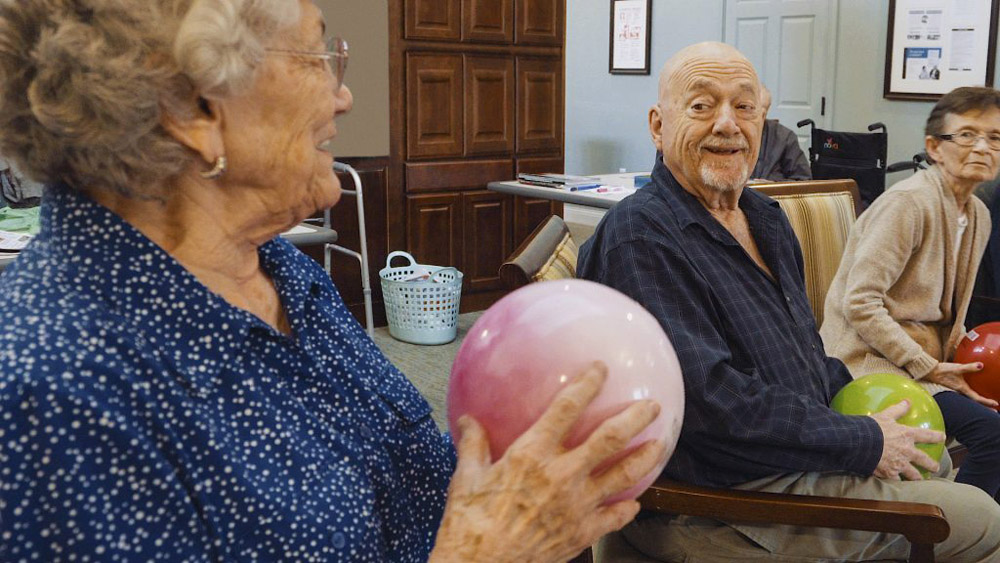Memory Care Explained: Recognizing Solutions That Make a Difference
Memory care solutions have actually arised as a crucial source for individuals facing cognitive disabilities, such as Alzheimer's and dementia. These specific programs not just supply protected atmospheres and skilled staff however likewise include tailored tasks that improve cognitive interaction and emotional wellness. Comprehending the array of therapies and assistance systems readily available is essential for households guiding via these complicated choices. As we explore the different parts that add to effective memory care, it comes to be clear that the right options can substantially influence the quality of life for both homeowners and their households.
Introduction of Memory Care

Specialized Therapies Available
Numerous specialized therapies are offered within memory care solutions, each customized to resolve the unique challenges encountered by individuals with cognitive impairments. These treatments intend to enhance cognitive functioning, promote psychological health, and boost total top quality of life.One favored method is memory treatment, which urges people to review previous experiences through photos, music, and familiar objects. This technique can stimulate memories, boost discussion, and foster links with caretakers and peers.Another effective therapy is cognitive stimulation treatment (CST), made to engage individuals in mental workouts that advertise cognitive skills and social interaction. CST sessions usually entail problems, tests, and discussions, providing organized cognitive difficulties that aid keep mental agility.Art and music therapy are additionally integral parts of memory care. These therapies leverage imaginative expression to facilitate communication and emotional release, typically profiting those who may deal with verbal communication.Additionally, animal-assisted therapy has actually acquired recognition for its capability to decrease stress and anxiety and advertise social interaction through the presence of therapy animals. Jointly, these specialized therapies play an important role in boosting the lives of individuals with memory disability, cultivating a supportive and improving atmosphere.
Engaging Tasks and Programs
Engaging tasks and programs play a crucial function in memory care solutions, supplying people stimulating chances that advertise cognitive involvement and social interaction. Customized to the distinct demands of citizens, these activities include arts and crafts, songs therapy, memory games, and workouts. Such programs are made not only to improve cognitive feature however also to foster a feeling of accomplishment and community (Boutique Memory Care Charlotte).Social interaction is a vital component of memory care, as it helps minimize sensations of seclusion and anxiety frequently experienced by people with memory disabilities. Group activities motivate interaction and partnership, producing an environment where locals can share experiences and construct relationships.Moreover, engaging activities can be adapted to differing levels of cognitive capacity, ensuring that all individuals can take part meaningfully. Employee trained in memory care facilitate these programs, supplying assistance and encouragement tailored to every individual's capabilities.Incorporating familiar routines and rate of interests into these activities can further boost their performance, helping residents attach with their past and keep a feeling of identification. In general, an all-around selection of interesting tasks improves the lives of those in memory care, adding to their overall wellness and high quality of life
Significance of Household Assistance

Choosing the Right Center
Selecting the best memory care facility is an essential decision that calls for careful consideration of various elements. First, assess the degree of care your enjoyed one needs. Facilities vary in their offerings, from basic help to specialized memory care programs customized for problems such as Alzheimer's and various other dementias.Next, think about the environment of the center. A welcoming, secure, and comfy ambience can considerably influence a local's well-being. Browse through potential centers to evaluate their tidiness, safety and security functions, and overall atmosphere. Observe staff interactions with residents, as thoughtful and skilled caregivers are essential to high quality care.Additionally, ask about the center's staffing proportions and certifications. Dementia Care Charlotte. Enough staffing warranties individualized focus and timely feedbacks to locals' needs. Review the schedule of tasks and programs that advertise engagement, socialization, and cognitive stimulation, as these are important for preserving lifestyle
Regularly Asked Inquiries
What Is the Cost of Memory Care Providers?
The cost of memory care services varies significantly based upon location, center type, and degree of care required. Typically, households can expect to pay in between $4,000 and $7,000 each month - Alzheimer’s Care. These costs typically encompass real estate, dishes, personal care, and specific assistance for memory-related problems. It is essential for families to research choices thoroughly and take into consideration economic support programs, insurance policy coverage, and prospective long-term care planning to take care of these prices efficiently

Just How Is Team Trained to Handle Memory Care Citizens?
Team training for memory care citizens is thorough and specialized, concentrating on recognizing the unique requirements of people with cognitive problems. Programs generally include education on dementia-related problems, interaction techniques, habits monitoring, and psychological assistance strategies. Training additionally stresses the value of creating a safe and revitalizing setting. Ongoing education and learning and hands-on experience guarantee personnel are equipped to give compassionate care, fostering self-respect and regard for homeowners while advertising their general well-being.
Are Memory Care Facilities Accredited and Regulated?
Yes, memory care centers go through licensing and regulative oversight, which differs by state - Dementia Care. These regulations ensure that centers meet certain criteria associated with security, care top quality, staffing, and resident legal rights. Typically, state health and wellness divisions or regulatory bodies conduct inspections and keep track of compliance to protect residents with memory problems. Potential homeowners and households ought to verify a center's licensing standing and regulative history to determine sufficient care and assistance solutions are provided
Can Locals Personalize Their Living Rooms?
Yes, citizens in memory care facilities often have the chance to customize their space. This customization might include choosing decorations, arranging furnishings, or showing individual valuables, which can help produce a feeling of experience and comfort. Such modification is encouraged to advertise originality and boost the psychological health of homeowners. Any modifications are typically subject to facility guidelines to ensure safety and security and keep a helpful environment for all citizens.
What Are the Going To Hours for Family Members?
Going to hours for household members are normally developed to ensure that residents get ideal care while preserving meaningful links with their enjoyed ones. These hours might vary by center, however typically, visitation is allowed throughout marked times, typically in the mid-day and very early night. Dementia Care. It is a good idea for household participants to confirm particular going to hours with the center to guarantee compliance with any policies in location, along with to enhance the general experience for both citizens and site visitors